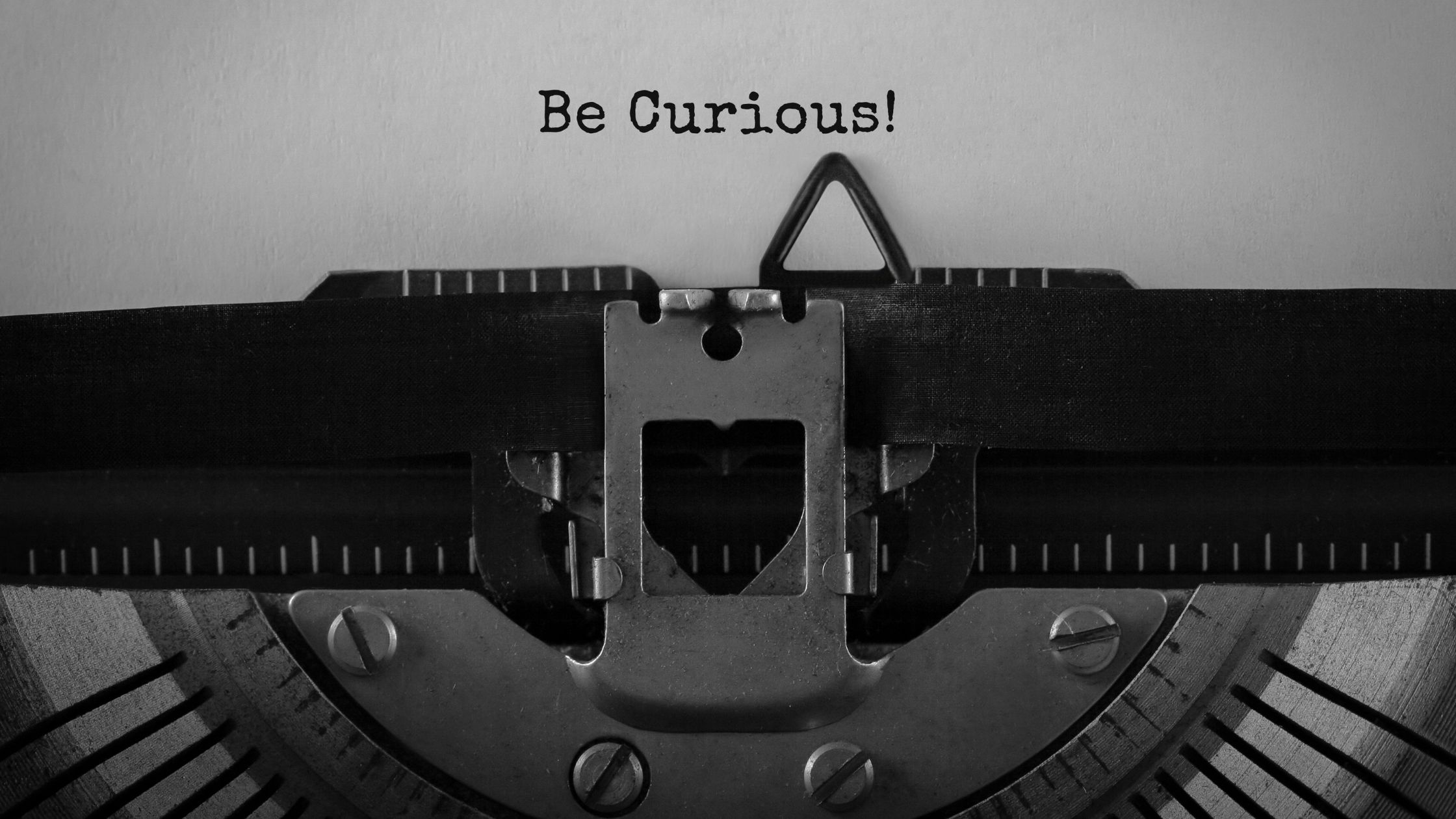We only have one life and we are more amazing than we give ourselves credit for. Why are we not being kind to ourselves? Valuing those around you – appreciating the things they do for you, the things they say, who they are as a person – is often much easier than valuing yourself. Many of us struggle to appreciate the things that make us great, and the things we have, for fear of coming across as too arrogant, or as if we’re bragging. It’s time to stop worrying about what others think of us for valuing ourselves; it’s time to have the courage to value yourself.
When I mention bravery, you’re probably thinking of heroic deeds like running into a burning building to save someone, or rescuing someone from drowning. However, courage isn’t just big acts – even something small like saying “no” to your boss when they ask you to add too much extra to your workload is an act of bravery. Valuing yourself enough to look after your best interests is the kind of courage I want to help everyone have! My book First Comes Courage refers to courage for you! This refers to the courage to step up, take responsibility and take control.
Here are some common scenarios where having the courage to value yourself will lead to a better outcome for you:
· Staying in a job or career you dislike, purely for the money.
· Keeping relationships (romantic or friendly) even though they are negative and giving you nothing back, only taking.
· Worrying more about being a people-pleaser and saying “yes” to everything, no matter how overwhelmed you get.
· Comparing your life to others.
Settling for less than you deserve in any circumstance will leave you unfulfilled and unable to reach your full potential. Stop wondering if there’s something better – you’ll never know if you don’t take that leap!
Taking the first step is hard, but as I’ve written about in my blogs 7 Ways to Overcome Fear and The Brain and Overcoming Fear, the most effective way to get over your fear – whether it’s of saying “no”, or of being alone (which is why you prefer bad company over none) – is just doing it. The more you do something, the less intimidating it becomes. I wish I had an easier answer for you, but that old saying is true! Nothing worth having comes easy! Take a look in the mirror and find the courage to tell yourself these things:
· I deserve to be happy.
· I deserve the best.
· I am a valuable part of many peoples’ lives.
· I have so much to offer.
· I am me. Nobody else is me, so why compare myself to others?
I love mantras and affirmations, and repeating the ones above as often as you can will help you start to see your value. The more you repeat them, the more you believe them – and you’ll find the courage that comes from valuing yourself will flow. True courage is knowing your own value, believing in it, and showing others that you know your value as well. Those who can admit when they can’t take on any more work, need to step back from a toxic relationship, or that something else just isn’t working for them, are the ones who earn the most respect – and they’re much happier, too! What do you value about yourself?
Sign up to the Outstanding Women Leaders Program – ONLY $995

Former world champion aerial skier, Alisa Camplin says that for a lot of people the urge to self-criticise is strong, but it is rarely useful. Showing kindness and compassion to yourself improves the quality of your life as well as your ability to achieve – but sometimes it’s easier said than done. As Alisa says, there are better ways to become your own best ally. Life is not all sunshine and rainbows. When something goes wrong in our lives, most of us will fester in the frustration and then either punish ourselves for the situation at hand, or blame someone (or something) else. The reality is that both of these responses have their limitations.
Alisa summarises her thoughts by saying there’s a space between these two choices – and that’s what we refer to as self-compassion. To show compassion to yourself is the ability to appreciate your own self-worth and to genuinely care about your wellbeing in the wake of a setback. Self-compassion should not be confused with self-esteem, because self-compassion requires you to be judgement free (of yourself or anyone else), whereas self-esteem involves evaluating yourself in comparison with others.
Dr Kristin Neff, associate professor at the University of Texas at Austin, has described self-compassion as the capacity to give ourselves the same kindness and care that we’d give to a good friend. If a close person in your life came to you with a problem, how would you react? Generally, you would strive to comfort them first and then help them accept the situation. In this sense, you could say that self-compassion is the purest expression of altruism because it’s the ability to show kindness to yourself without any expectation of the outcome.
Dr Jia Wei Zhang, assistant professor of experimental social psychology at the University of Memphis, has argued that self-compassion cultivates a greater sense of authenticity because it minimises negative thoughts and self-doubt while elevating emotional resilience and optimism. In this sense, the more you practise self-compassion the greater your connection to yourself – which, in turn, leads to a more authentic life. Practising self-compassion as part of living true to ones-self, delivers a raft of mental health benefits and increases performance outcomes too.
Psychologist Susan David explains how you can cultivate this quality of self-compassion. Susan explains that you can start by ending the tug-of-war inside yourself. In a research study that looked at more than 70,000 people, Susan found about one-third of the participants judged their normal experiences and emotions as being “good” or “bad”, “positive” or “negative”. When you evaluate your life in such a black-and-white way, you’re entering into an internal tug-of-war — you criticise yourself whenever you feel “bad” or “negative” emotions and whenever you don’t feel “good” or “positive” emotions.
Susan says, to stop the tug-of-war, simply drop the rope. When we experience a challenging emotion like sadness or disappointment, many of us respond by telling ourselves: “This is bad; I shouldn’t be feeling this. Why can’t I be more positive?!?” And then we follow up this judgement with more judgement — we berate ourselves for not being self-compassionate. Next time that happens, try saying to yourself, “I’m feeling sad. What is this sadness a signpost of? What is it pointing to that’s important to me? What is it teaching me?”
Marianna Pogosyan, Ph.D., a lecturer in Cultural Psychology and a consultant specialising in the psychology of cross-cultural transitions refers how to be kind to yourself. Marianna refers to a great Oscar Wilde quote “To love oneself is the beginning of a life-long romance.” As is the tale of every love story, times will bring both sun and storm, testing our deepest intentions on how we relate to ourselves. Love comes easy on good days, when our self-esteem stands tall on our accomplishments. It’s when we fall that our self-directed goodwill often deserts us. Suddenly, we remember all our faults. Our internal monologue muds with harsh judgments. We blame and shame ourselves for our pain. We abandon ourselves and look to whoever (and whatever) would give us comfort. One way to winning back our own hearts and reclaiming our well-being is through self-compassion.
As a concept derived from Buddhist psychology, self-compassion entails treating oneself with kindness and care, like we would treat a dear friend. Kristin Neff, one of the leading self-compassion researchers, has identified three main components of self-compassion: self-kindness, feelings of common humanity, and mindfulness.
A wealth of research has shown the positive consequences of self-compassion on numerous aspects of our well-being, including a greater life satisfaction, emotional intelligence, interconnectedness with others, wisdom, curiosity, happiness, and optimism. Self-compassion is also associated with less self-criticism, depression, anxiety, fear of failure, and perfectionism (Neff, 2009). Importantly, to reap the benefits of self-compassion, we don’t need to compare ourselves to others or inflate our egos. Thus, self-compassion can lead to greater emotional resilience, since unlike self-esteem, our heightened feelings of self-worth will not be contingent on our successes. Strategies for increasing self-compassion
- “What do I need?”
- “How do I care for myself already?”
- “What would I say to a dear friend in a situation like this and how would I say it?”
- It’s not what you do, but why you do it.
Remember, you yourself deserve your kindness. “You yourself,” as the Buddhist saying goes, “as much as anybody in the entire universe, deserve your love and affection.”
My mantra is to always be a Brave and Kind Leader and empower brave and kind leaders around me and across the world. Research had shown that Kindness is a strength for leaders and that being kind makes us happier and our employees more productive!
My 7 laws for being a kind leader include being kind to yourself first:
- Kindly be Present – The best gift you can give yourself and others is to be truly there.
- Kindly be Compassionate – Be kind to yourself first and foremost and compassionate to others.
- Kindly show you Care – People want to be cared about and by showing you care about others at work and in the community makes a difference.
- Kindly show Gratitude – Always saying thank you to everyone who did something that you are grateful for whether it’s your team for doing great work or cafe worker making your coffee.
- Kindly help others – If you someone is struggling or needs support of guidance, offer your help.
- Kindly show Respect – Accept everyone for who they are no matter what and respect them as human beings.
- Kindly be Kind – Ralph Waldo Emerson may have said it best. “You cannot do a kindness too soon, for you never know how soon it will be too late.”
When we place priority on ourselves first, we are better able to care for others. Review how well this has been managed by you, want you can do differently and do starting today!
Write down 5 ways you could be kind to yourself below!
“The Most Terrifying Thing Is To Accept Oneself Completely.” ― C.G. Jung
Here are some of my favourite books too –
By Sonia McDonald – CEO of LeadershipHQ and the Outstanding Leadership Awards, Leadership Coach, Global Keynote Speaker, Entrepreneur, Mum And Award Winning Author.



